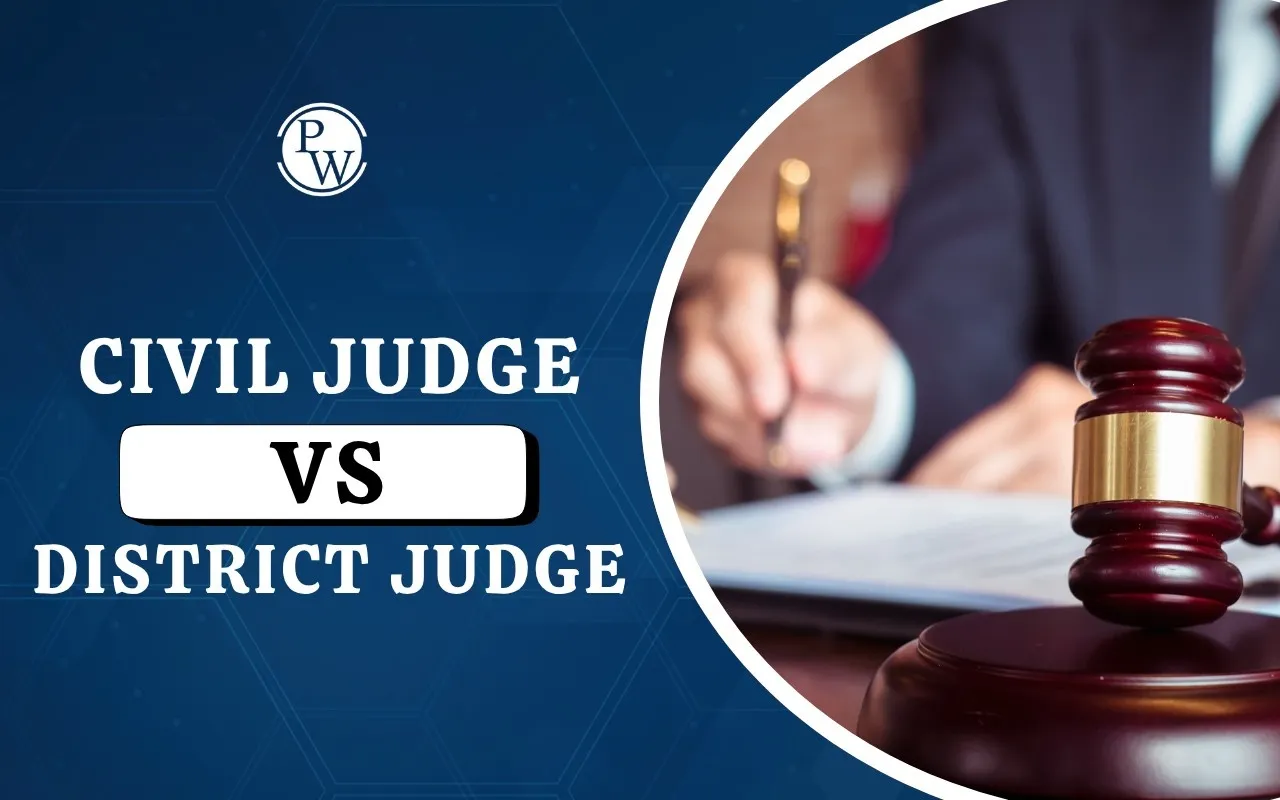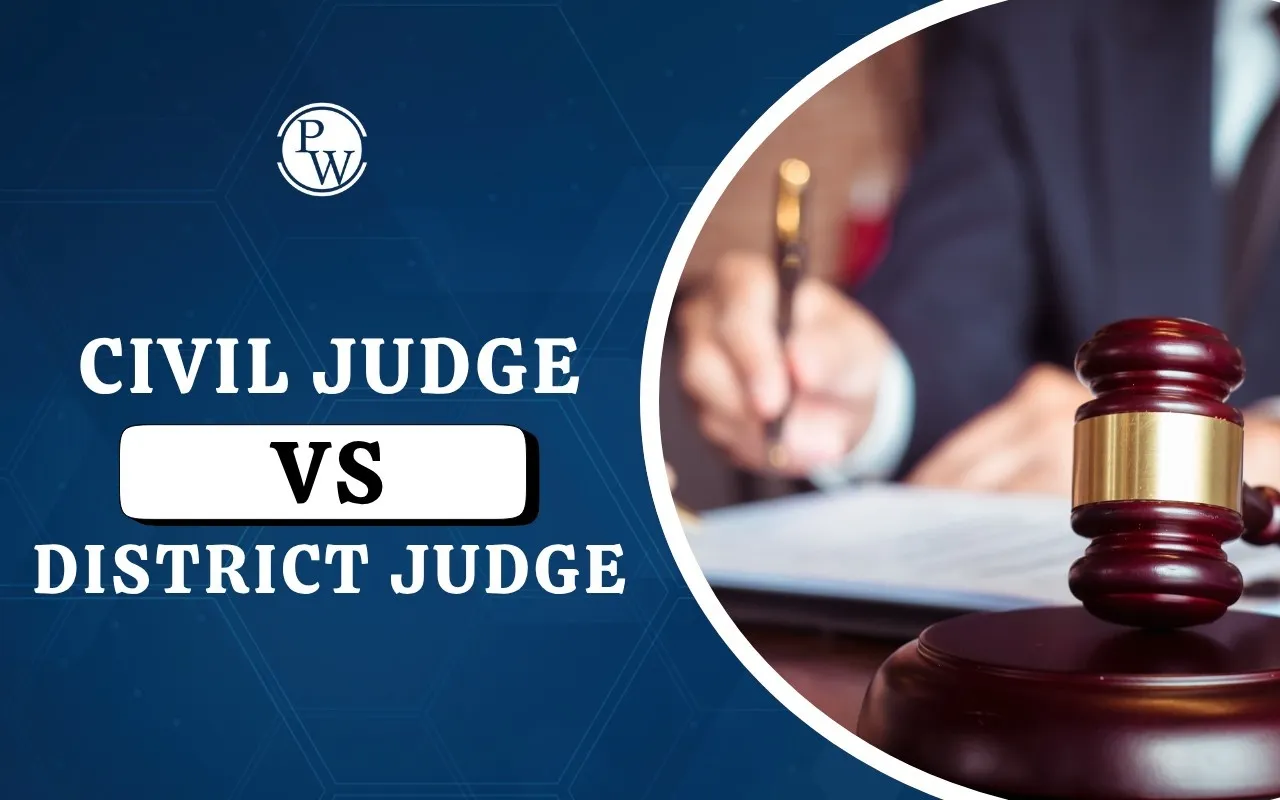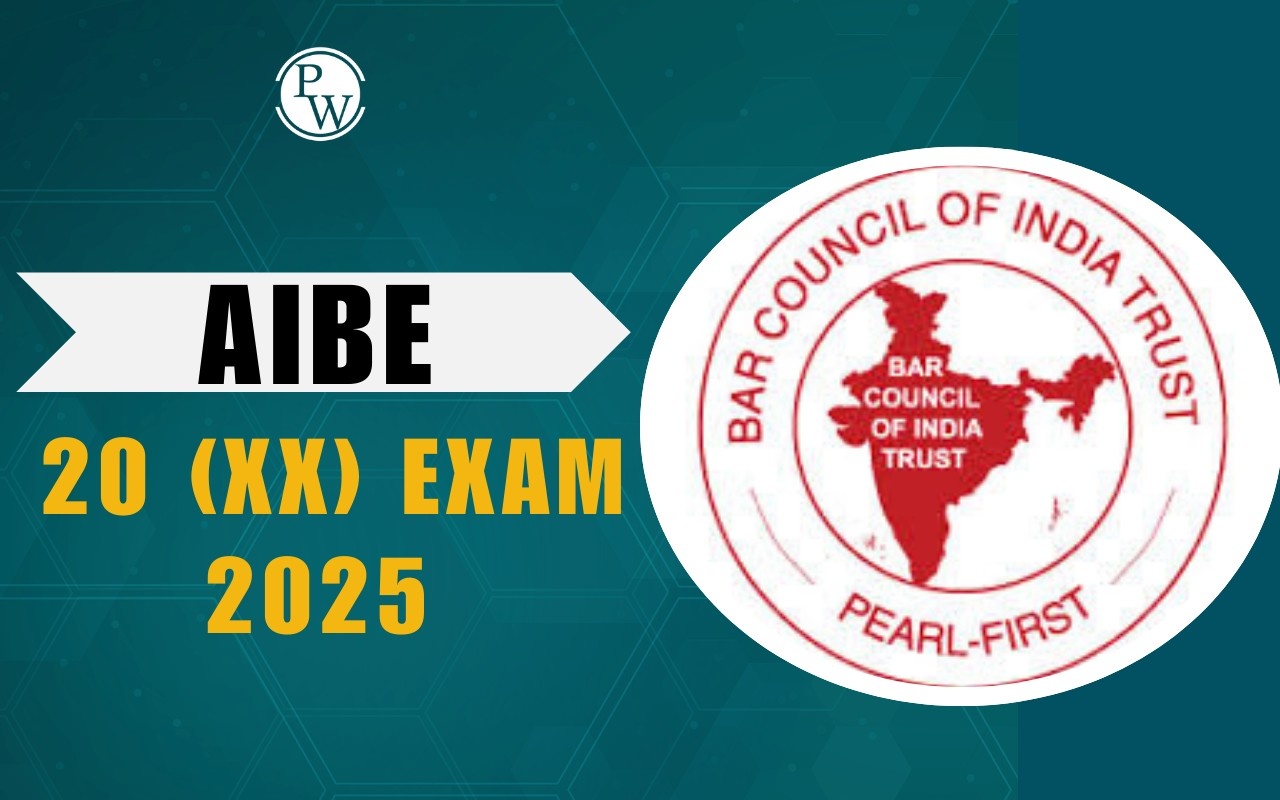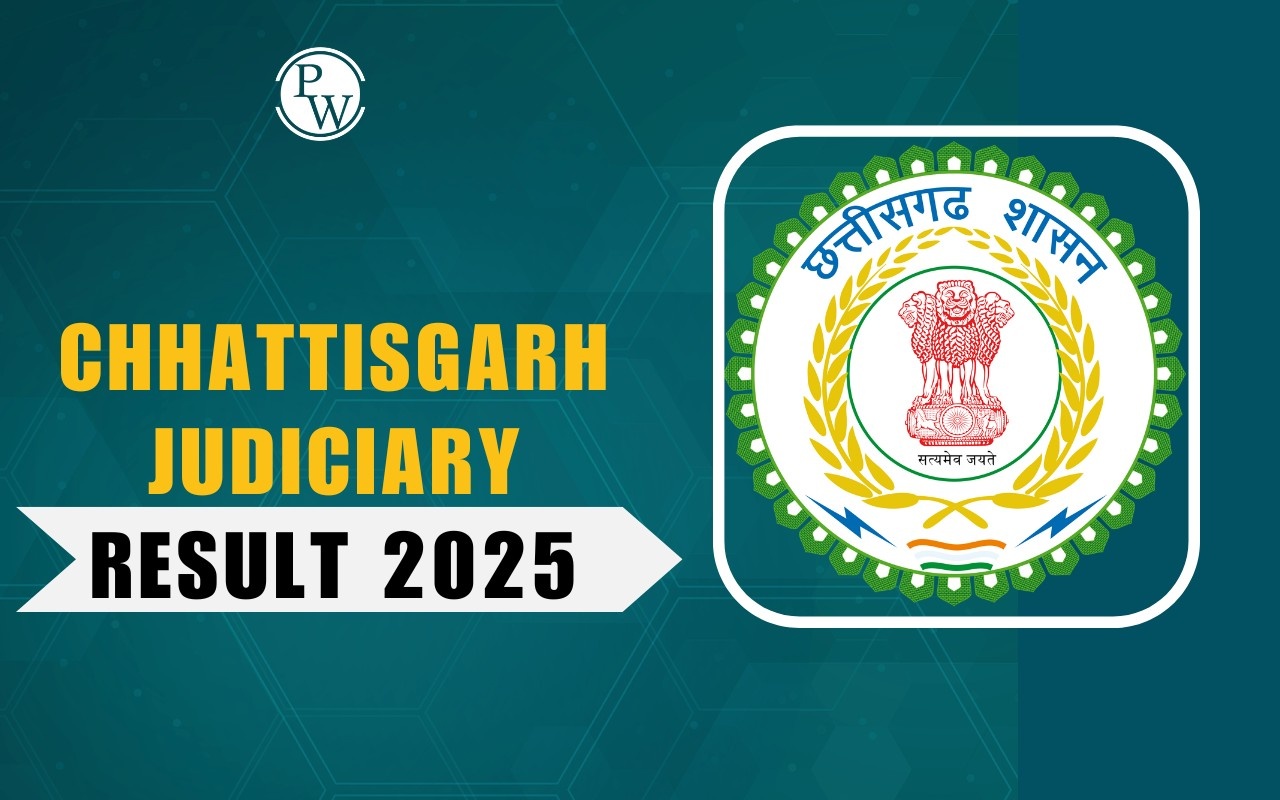

Civil Judge vs District Judge: The judiciary is a core part of the democratic system. It ensures that laws are followed and justice is served. Within the Indian legal structure, the roles of the Civil Judge vs District Judge are very important.
People often get confused about these two positions. The difference between a Civil Judge and a District Judge is easy to understand. It relates to their rank, the types of cases they hear, and how they get appointed. The Civil Judge is at the beginning of the judicial career path. The District Judge is at a higher level. They are the chief judicial officer of an entire district.
Civil Judge vs District Judge
Civil Judge vs District Judge positions mark different levels of authority in the subordinate courts. These courts function below the High Court. The difference is mainly about the scale of power and the years of experience needed for each job. The Civil Judge is the entry-level judge. The District Judge is a senior, controlling position.
What is Civil Judge?
A Civil Judge is the starting point for a career in the judiciary. These judges preside over courts at the lowest level. They handle a high volume of local cases. The designation is further divided based on experience and power.
Civil Judge (Junior Division)
This is the first judicial post a candidate gets after clearing an exam.
-
Role: The Civil Judge (Junior Division) is a trial judge. This means they hear a case for the first time.
-
Civil Cases: They deal with civil disputes of low monetary value. The exact amount is set by the state government.
-
Criminal Cases: In criminal matters, they act as a Judicial Magistrate of the First Class. They handle less serious crimes. They can give a maximum sentence of three years of imprisonment.
-
Recruitment: They are recruited directly through the State Judicial Service Examination, commonly called PCS-J.
Civil Judge (Senior Division)
This position is a promotion from the Junior Division. It requires several years of service and good performance.
-
Role: The Senior Division Judge is more experienced. They manage more complex cases.
-
Jurisdiction: They have the authority to hear civil suits of higher monetary value than the Junior Division.
-
Criminal Cases: They often act as the Chief Judicial Magistrate (CJM). A CJM can award a sentence of imprisonment up to seven years.
What is District Judge?
The District Judge holds the most powerful judicial office in a district. This judge sits at the head of the District Court. The District Court is the highest court in a district.
Dual Designation
The District Judge has a dual role, depending on the type of case:
-
District Judge (Civil Cases): When dealing with cases about property, contracts, or other civil disputes, they are called the District Judge.
-
Sessions Judge (Criminal Cases): When dealing with serious crimes like murder and rape, they are called the Sessions Judge.
Powers and Authority
The District Judge has much broader powers than a Civil Judge.
-
Unlimited Civil Power: They have unlimited pecuniary jurisdiction. This means they can hear any civil case regardless of its financial value.
-
Appellate Authority: They are the main court for appeals. They hear appeals against the judgments passed by the Civil Judge (Senior Division) courts.
-
Highest Criminal Power: As a Sessions Judge, they can impose any legal sentence. This includes life imprisonment or even the death penalty. However, a death sentence needs to be confirmed by the High Court.
-
Administrative Control: The District Judge supervises and controls all the other civil and criminal courts in the district. They manage the transfer, posting, and discipline of the lower judicial staff.
Civil Judge vs District Judge Major Differences
The core differences are in authority, experience, and the method of entering the post. The District Judge is a promotional post for a Civil Judge. It is also an open post for senior lawyers.
|
Civil Judge vs District Judge Major Differences |
||
|
Feature |
Civil Judge (Junior Division) |
District Judge |
|
Position in Court |
Subordinate to the District Judge. |
Head of the District Court and the district judiciary. |
|
Jurisdiction (Civil) |
Limited pecuniary jurisdiction (fixed low amount). |
Unlimited pecuniary jurisdiction (can hear any value case). |
|
Experience for Entry |
Law graduate with minimal or no experience needed for PCS-J. |
Minimum seven years of continuous law practice is required for direct entry. |
|
Recruitment Exam |
State Judicial Service Examination (PCS-J). |
Higher Judicial Service (HJS) Examination (for direct recruitment). |
|
Appellate Role |
None. Only hears cases at the original trial stage. |
Hears appeals from the lower Civil Judge (Senior Division) courts. |
|
Criminal Sentence |
Maximum 3 years of jail term |
Can award the Death Penalty or life imprisonment. |
Common Things Between Civil Judge and District Judge
Despite the rank difference, both roles are part of the same judicial system. They share many common features. A table has been provided for things common between civil judge and district judge.
|
Common Things Between Civil Judge and District Judge |
|
|
Common Feature |
Description |
|
Legal Education |
Both must hold a Bachelor of Laws ($\mathbf{LL.B}$) degree from a recognised university. |
|
Supervision |
Both are judicial officers who work under the authority of the High Court of their state. |
|
Jurisdiction Type |
Both exercise authority over both civil and criminal matters within their respective courts. |
|
Goal |
Their main job is to interpret the law and deliver justice fairly. They protect the rights of the citizens. |
Different Exams For Civil Judge and District Judge
Different Exams For Civil Judge and District Judge are required to appear to get an appointment in the court. Candidates can understand the differentiation between a civil judge vs district judge.
|
Different Exams For Civil Judge and District Judge |
||
|
Judicial Post |
Exam Route |
Target Candidate Group |
|
Civil Judge |
PCS-J Exam (State Judicial Service Exam) |
Law graduates at the beginning of their legal career. |
|
District Judge |
HJS Exam (Higher Judicial Service Exam) |
Experienced advocates who have already been practising law for seven years. |
Career Scope For Civil vs District Judge
The career growth for a Civil Judge is structured and progressive. It can lead to the highest judicial positions in the country.
Career Path of a Civil Judge
A Civil Judge enters at the Junior Division level. They move up the ladder based on their service and merit.
-
Civil Judge (Junior Division)
-
Civil Judge (Senior Division) (After $\sim 5$ to $\mathbf{7}$ years)
-
District Judge (Through promotion based on seniority or a competitive exam)
-
High Court Judge (Exceptional officers can be elevated)
-
Supreme Court Judge (A rare achievement for former Civil Judges)
Most officers who start as Civil Judges retire in the post of District Judge or a related senior judicial role.
Career Path of a Direct Entry District Judge
Advocates who directly enter as District Judges are already senior professionals. Their career progression is focused on increasing seniority within the District Judge cadre.
-
District Judge (Entry Level)
-
District Judge (Selection Grade)
-
District Judge (Super Time Scale)
-
High Court Judge (Elevation is possible based on performance)
Explore the Judiciary Courses 2025 to access essential resources for Judiciary exam preparation, including detailed insights and strategies. Dive into the Judiciary 2025 for structured courses and focused study plans designed to help aspirants excel in their exams.
Civil Judge vs District Judge FAQs
What is the main difference between a Civil Judge vs District Judge?
Can a lawyer become a District Judge directly?
Which court is higher, the Civil Judge court or the District Judge court?
Who appoints the Civil Judge and the District Judge?
What are the two ways a person can be appointed as a District Judge?













